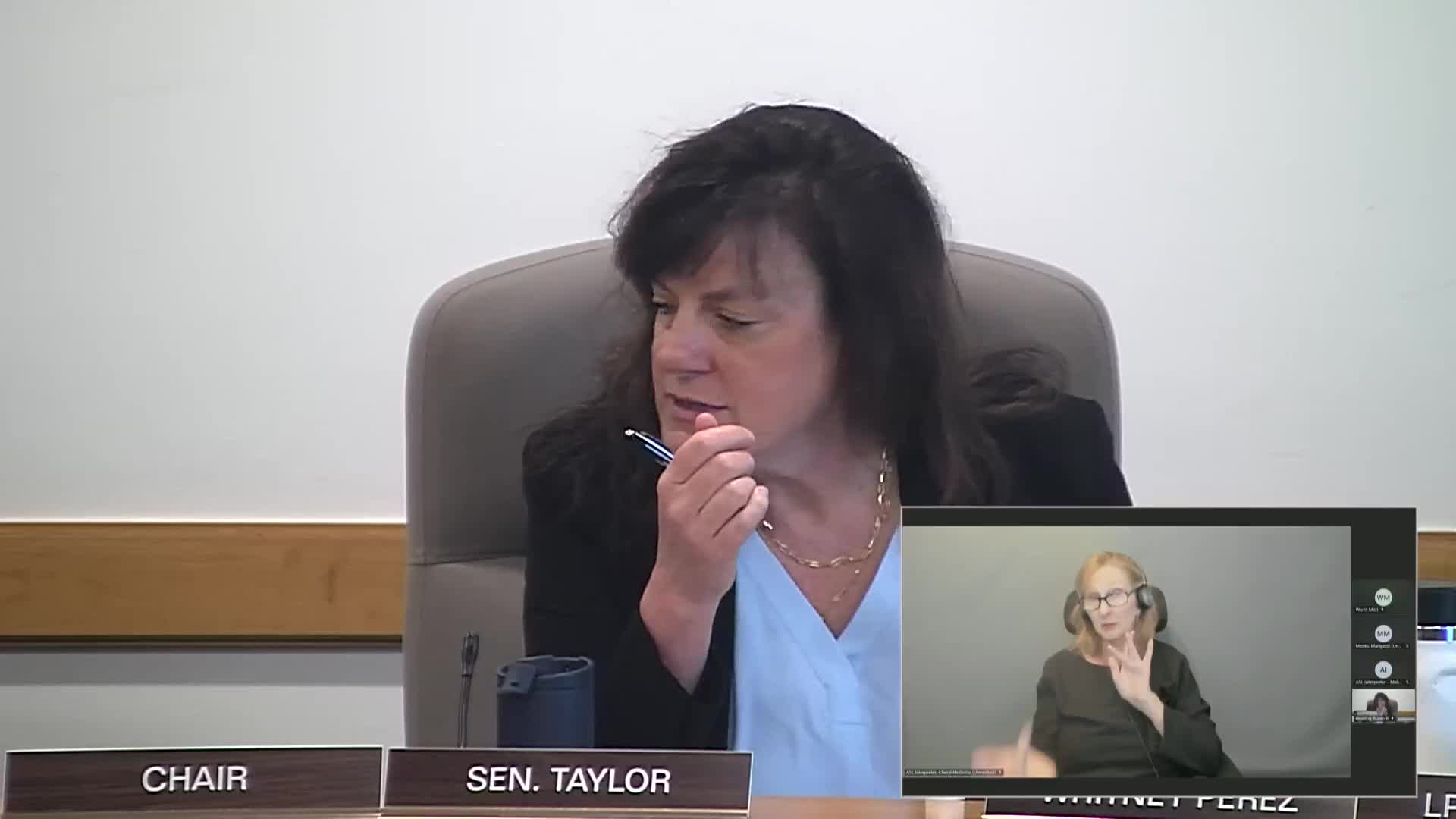Bill would create escalating fines for public employers that repeatedly delay union dues remittance and employee rosters
Get AI-powered insights, summaries, and transcripts
Subscribe
Summary
Senate Committee on Labor and Business members heard May 1 testimony on House Bill 2944 A, which would require the Employment Relations Board to impose escalating civil penalties on public employers for repeat failures to remit authorized union deductions and to provide bargaining‑unit rosters.
The Senate Committee on Labor and Business on May 1 took public testimony on House Bill 2944 A, a bill that would direct the Employment Relations Board (ERB) to impose civil penalties on public employers for repeat or subsequent violations of certain PECPA duties, including timely remittance of dues and regular submission of bargaining‑unit rosters.
Representative Travis Nelson (House District 44) framed the bill as enforcing obligations the Legislature clarified in 2019. Nelson said some employers have delayed remitting dues or providing rosters for months or years and described the bill as "measured, fair, and ... grounded in accountability." He said the bill removes an automatic civil penalty for first offenses and establishes a graduated penalty structure for second and subsequent violations to fit employers of different sizes.
Under the A engrossed described in committee, a second violation would carry a civil penalty not less than $1,000 and not more than $5,000; a third violation and beyond would carry a penalty not less than $5,000 and not more than $10,000. The bill directs the ERB to consider extenuating circumstances such as natural disasters or cybersecurity events when setting penalty amounts but would require the board to impose a civil penalty for repeat violations within those ranges.
Opponents — including the League of Oregon Cities, Association of Oregon Counties and some individual legislators — urged adding clearer affirmative defenses for catastrophic events, saying the new minimums could force financially strained small cities and counties to pay fines when they are responding to floods, wildfires or cyberattacks. Representative Lucetta Elmer said she brought a minority report in the House to preserve sanctions while adding an affirmative defense for extenuating circumstances and argued local governments need a clear statutory safe harbor for catastrophic events.
Adam Reinert, chair of the Employment Relations Board, told the committee that since the 2019 changes took effect on Jan. 1, 2020, the ERB has received seven complaints about these duties, issued one consent order, and seen several cases withdrawn. He said the board currently imposes civil penalties only when violations are found to be egregious, knowing, or repetitive; the bill would create a specialized increased‑penalty structure for repeat violations of the specified PECPA duties.
Municipal and county representatives said they are willing to comply with the law but sought statutory language that would allow the ERB greater discretion to exempt or reduce penalties in exceptional events; unions and worker groups said the bill is necessary because voluntary compliance has not solved the problem and enforcement options are limited and costly for unions.
The committee closed the public hearing and the chair said a work session will be scheduled next Tuesday to consider amendments and further testimony.
